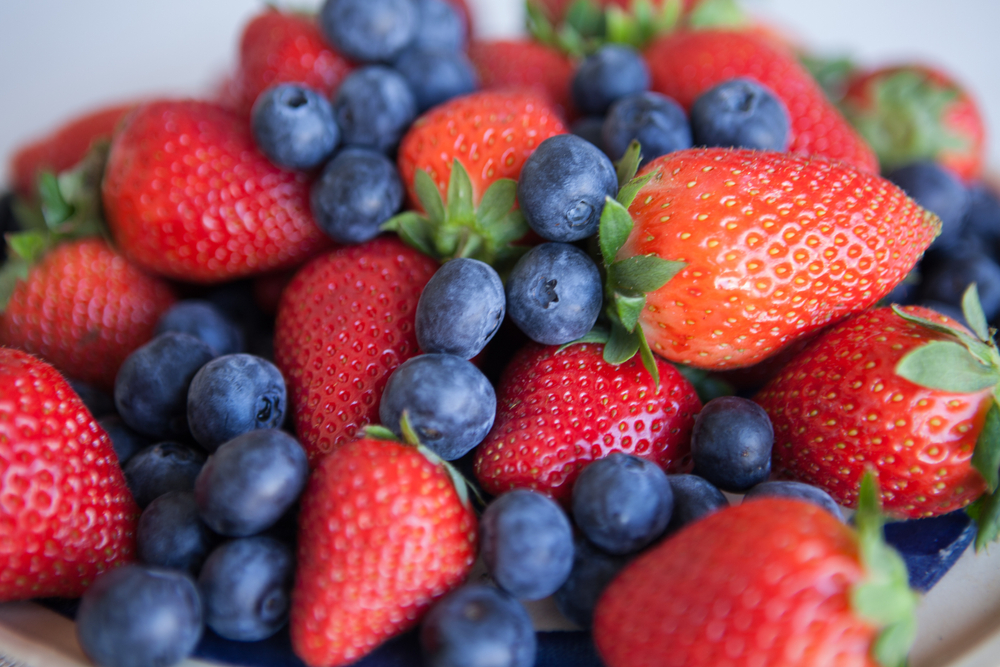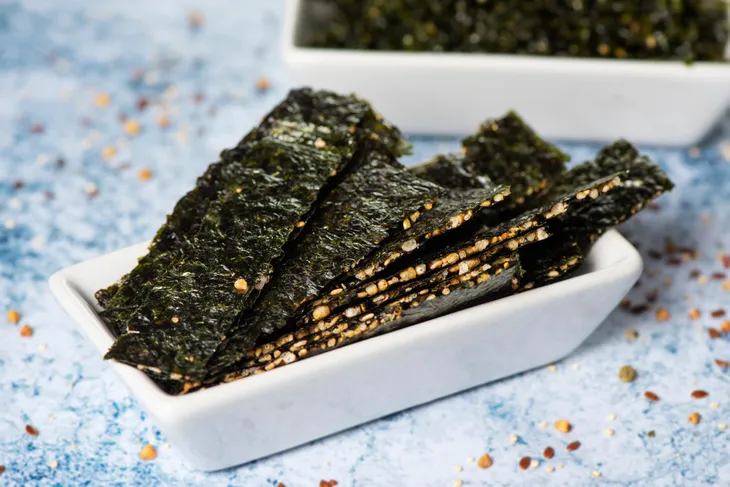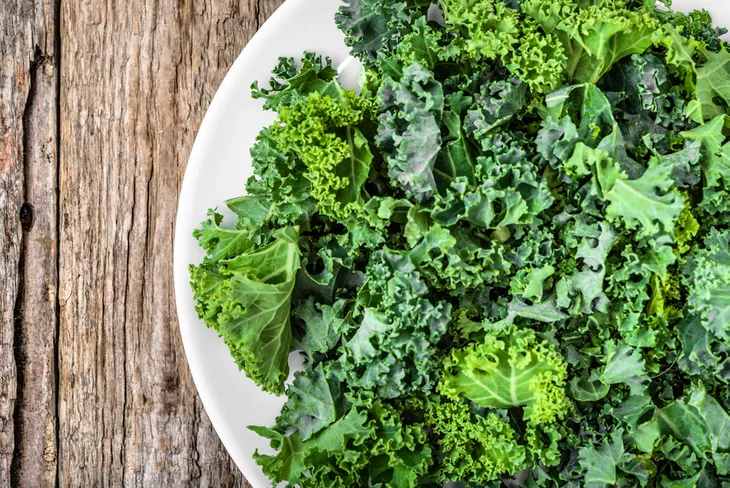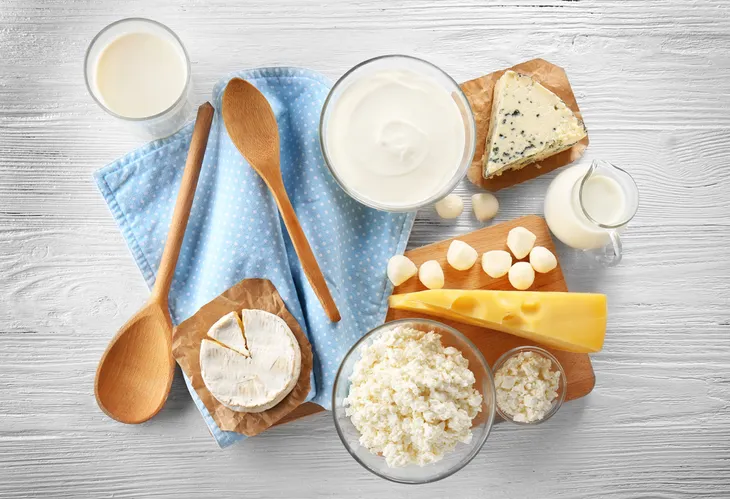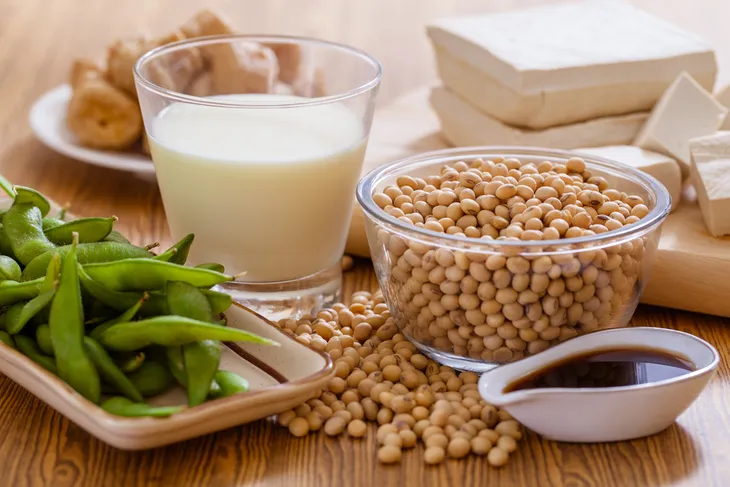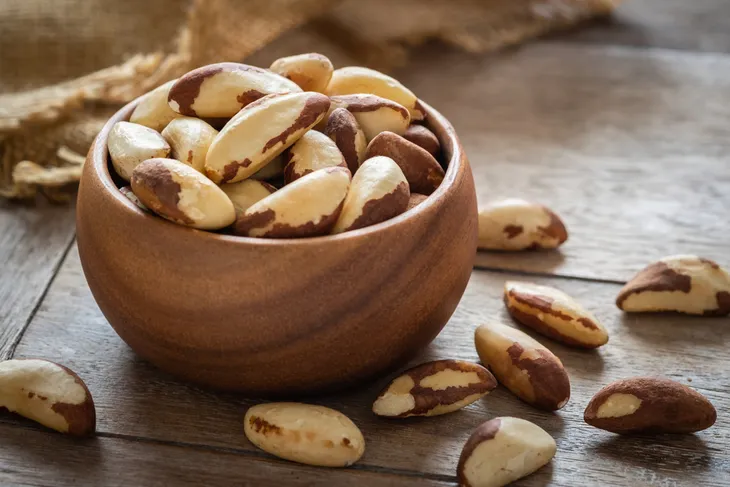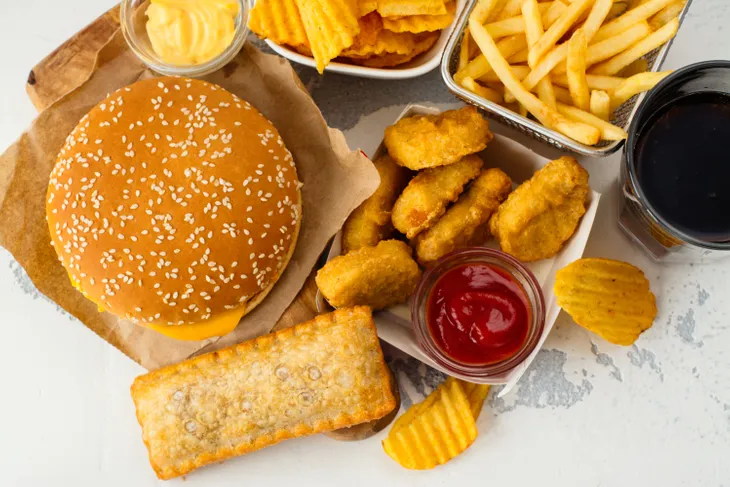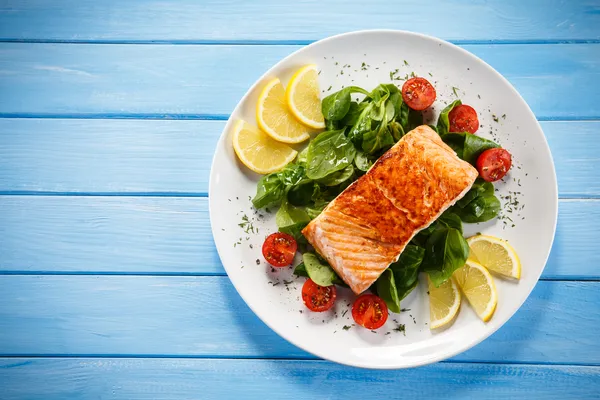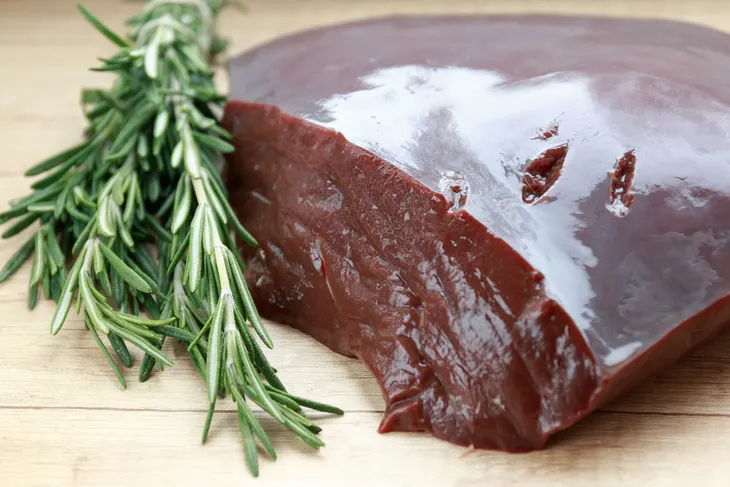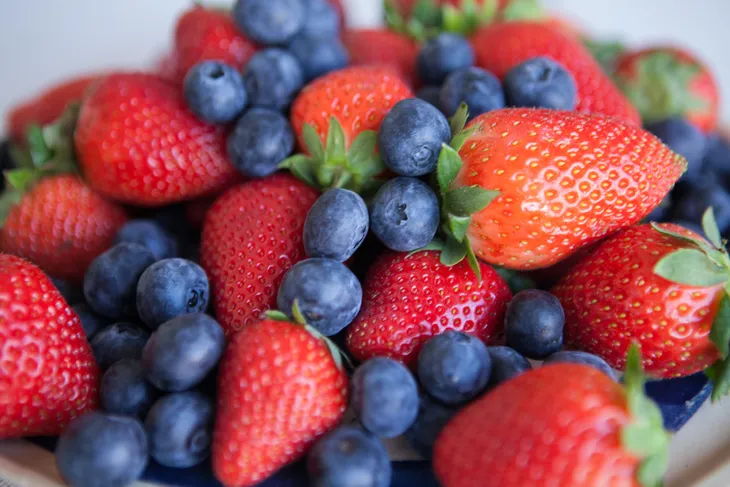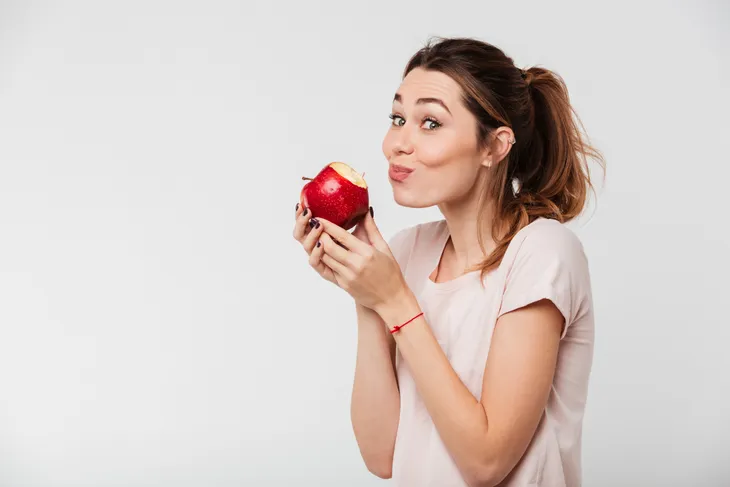Your thyroid gland is a major player in your endocrine system, and is responsible for regulating a number of functions in your body. Located in your neck, it helps keep your bodily functions running smoothly – so it’s no surprise that what you put into your body will have an impact on its health (and yours).
Health.com calls the thyroid “your body’s silent workhorse – most of the time, it functions so smoothly that we forget it’s there.” But when it’s off, you’ll almost definitely feel it through a variety of symptoms. While there are other factors that can affect your thyroid, a healthy diet is one of the components of its function – so here are 13 foods that are particularly thyroid-friendly, and others that… aren’t so much.
Good: Seaweed
Yes, this weed from the sea may not be appealing to everyone, but your thyroid sure loves it. Health.com explains that seaweed is “chockfull of iodine,” which the gland needs to function properly.
Depending on the type of seaweed, just 1-gram of it can provide anywhere from 11-percent to 1,989-percent of your required daily intake, says the source. However, it warns to be careful, as getting too much iodine in your diet can trigger hypothyroidism (an underactive thyroid). It suggests eating 1-fresh seaweed salad a week alongside your seaweed-wrapped sushi, with no supplements required.
Warning: Kale
This one may be a bit surprising to some, given that kale is often highly touted as a superfood that can do no harm. However, according to WebMD, “in rare cases it prevents the thyroid from getting enough iodine,” it explains.
However, the source says kale (which is part of the cabbage family) shouldn’t be a problem unless you’re already getting too little iodine in your diet, and you’re also eating a lot of kale. Other types of cabbage, as well as broccoli, cauliflower, and Brussels sprouts can also have a negative impact in the same way, warns WebMD.
Good: Dairy
According to Health.com, many Americans rely on dairy products to get their regular requirement of iodine – but the problem is, Americans aren’t consuming as much dairy as they used to (milk in particular).
It notes that just 1-cup of low-fat milk equals about 33-percent of your daily iodine requirements. Cheese is also a good option, as 1-slice will deliver a significant combo of iodine and vitamin D, it adds. If you don’t like cheese or milk, try some plain, low-fat yogurt or Greek yogurt, says the source.
Warning: Soy
What could be so bad about soy, a popular food among people who have chosen to forego meat products? Well, it turns out that edamame – one of the components of soy products – can block your thyroid’s ability to produce key hormones, it explains.
Like the kale warning, the source puts a side note on this one – namely, if your iodine levels are in check, then you should be OK if you don’t consume a large amount of soy.
Good: Brazil Nuts
According to EatThis.com, Brazil nuts are nuts about your thyroid, and you don’t need to go to South America to get them. The key component of these healthy nuts is selenium, an element that is “the all-essential ‘on’ switch to proper thyroid function,” it explains.
The source says it converts T4 thyroid hormones into active T3 hormones, while also acting as a shield for the thyroid against the “inflammatory byproducts of thyroid hormone production.” In fact, many people with a thyroid disease show a low level of selenium, adds the source. Just one nut per day can apparently help those with autoimmune thyroiditis.
Warning: Gluten
This one actually only negatively affects people who have Celiac disease, which is intolerance to gluten in wheat products, says Health.com. With that being said, if you already know you have the disease, you’re probably already avoiding gluten at the advice of your doctor.
However, the source also is quite specific that if you don’t have a diagnosis of celiac disease, then you shouldn’t arbitrarily avoid things like bread. “In fact, thanks to some of the baking processes, bread can actually contain some iodine,” it adds.
Good: Chicken and Beef
The key thing about these two meats is that they’re loaded with zinc, which can help accelerate thyroid function, according to Health.com. It says your body needs it to produce thyroid hormones. If you don’t get enough zinc, you can wind up with hypothyroidism, it adds.
On the flipside, if you develop hypothyroidism, you can become deficient in zinc because thyroid hormones are needed to absorb it, notes the source. These meats are both a good source of zinc, but if you’re not a meat eater, you can find zinc in beans, legumes, nuts, seeds, dairy, and whole grains.
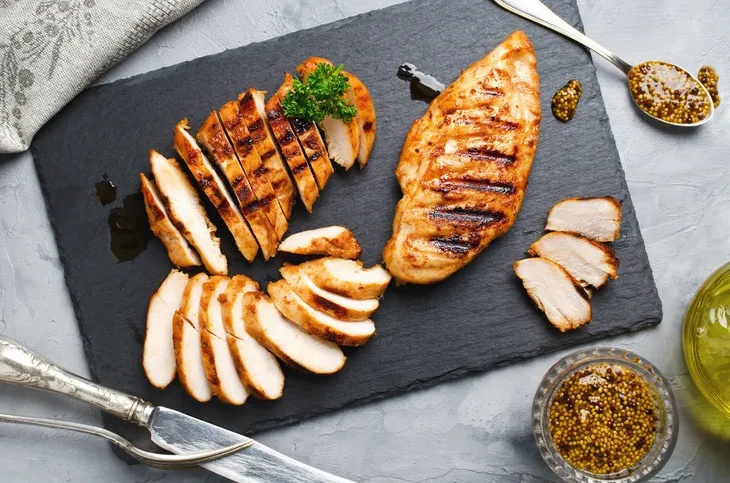 Shutterstock/vkuslandia
Shutterstock/vkuslandiaWarning: Fast Food
We’re going to straight up call this one bad, because eating fast food on a regular basis is bad for you in more ways than one (think sodium, saturated fat, and cholesterol).
However, the main reason Health.com doesn’t like fast food when it comes to your thyroid function is that fast food chains aren’t required to add iodized salt to their menu offerings. “And even when they do, it might not boost the iodine content all that much,” it adds, citing a commentary in the journal called Endocrine Practice.
Good: Fish and Shellfish
Eating stuff that lives in water apparently is a good choice for your thyroid health, according to EatThis.com. On its list of favorites are oysters, which it says are “one of the best dietary sources of zinc,” which we already told you is good for thyroid hormone production.
Meanwhile, in the fish category, the source mentions salmon in particular, mainly because of its benefits for your metabolism (which is connected to your thyroid). It says this yummy fish can reduce inflammation of the gland due to its omega-3 fatty acids. “The fishy fatty acids may also signal thyroid cells in the liver to burn more fat,” it notes, citing a study in the Journal of Nutritional Biochemistry.
Warning: Coffee
We’re saying this one is bad, but only if you’re already diagnosed with hypothyroidism and taking thyroid medications to manage it. EveryDay Health says a cup of Joe has “been found to block absorption of thyroid hormone replacement.”
In particular, the problem is when people take their morning medication with a cup of coffee in hand. The source cites a doctor that warns instead of mixing coffee and meds, you should only take them with water. You should also wait at least 30-minutes after taking the medication before sipping that delicious cup of coffee – meaning you might have to get up a bit earlier.
Warning: Organ Meats
Some people may have stopped reading after seeing the words “organ meat,” but there are many of us out there in the U.S. that like to chow down on kidney, liver, and other essential internal bits.
These organs have a fatty acid called lipoic acid, which is actually available as a supplement. However, “if you get too much, it could mess with the way your thyroid works,” says WebMD. Apparently it can also mess with the effectiveness of your thyroid medications if you’re taking any, it adds.
Good: Berries
Health.com says that while all the things we’ve mentioned such as iodine, selenium and vitamin D are good for the thyroid, they’re not the only pluses. Antioxidants are also important, and berries deliver a lot of them, it adds.
It cites a study by researchers from Turkey that concluded people with hypothyroidism (underactive thyroid) may have higher levels of cell-damaging free radicals in their body, which are mitigated by antioxidants. The best berries for antioxidants are wild strawberries, blackberries, goji berries, and cranberries, says the source.
Good: Apples
We’ll end this on a high note with another “good” food for the thyroid. It turns out an apple a day can keep thyroid problems at bay, according to EatThis.com.
The source explains that mercury is chemically similar to iodine but when the body tries to absorb it, “thyroid hormone production grinds to a halt.” Apples are rich in a fiber called pectin that apparently “sticks to toxic compounds” and naturally flushes them from your system via your pee, it adds.
